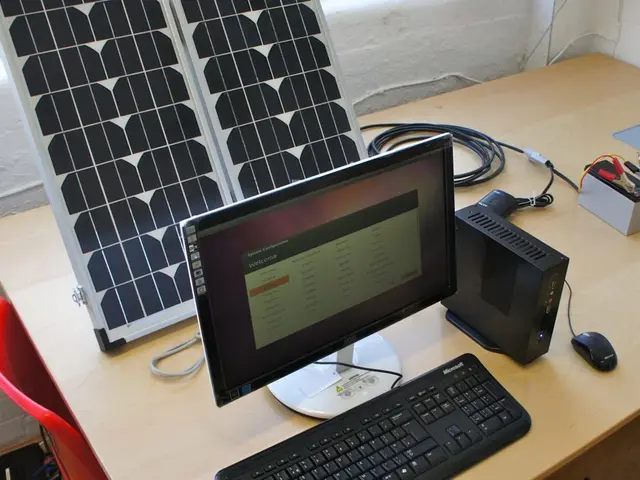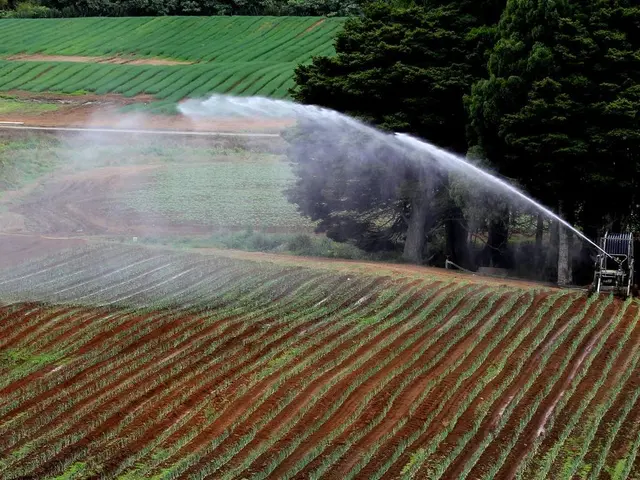Upgrading Energy Infrastructure: The "Augusta" Pipeline in Swabia and its Implications
Southern Germany Experiences Increased Gas Supply Due to Augusta Pipeline Upgrade - Enhanced Gas Supply in Southern Germany via the Augusta Pipeline
The practical and strategic landscape of Southern Germany's energy supply is set to undergo a significant transformation with the construction of a cutting-edge gas pipeline – dubbed the "Augusta" pipeline – in Swabia. Let's delve deeper into the details and implications of this intriguing development.
The "Augusta" pipeline, set to span approximately 41 kilometers, represents a potent trove of investments worth around 180 million euros. Bayernets GmbH, the operator, aims to construct this line to bolster the natural gas supply of Bavaria and Baden-Württemberg in the years to come. This futuristic pipeline will also boast the versatility of being convertible to hydrogen down the line.
Notably, the Swabian government in Augsburg has recently greenlighted the project, and construction has commenced. The pipeline,following an existing gas line, will traverse through ten municipalities, initiating in Wertingen, makings its way to Kötz, in the district of Günzburg. This ambitious project is necessary to ensure network stability and, consequently, the security of gas supply in Southern Germany.
The primary purpose of the "Augusta" pipeline is to liaise new gas power plants in Baden-Württemberg with gas storage facilities in southern Bavaria and Salzburg. Such a connection will serve as a pivotal catalyst for future generations' energy supply, heralding improved energy availability in the region and potentially easing tensions around reliance on alternative energy sources.
It is worth mentioning that Bayernets has had the "Augusta" pipeline in the pipeline for some time now. This project is an integral component of the nationwide gas network development plan. Bayernets commands a gas pipeline network spanning approximately 1,660 kilometers in Bavaria. Share ownership of the company is distributed among the municipal utilities of Munich and Augsburg, as well as Bayerngas, with other municipal companies also holding shares.
In the broader context of gas line projects, construction typically demands painstaking planning, the granting of permits, the actual laying of the pipeline, and the connecting of the pipeline to existing infrastructure. The cost of such projects encompasses the expenditure on materials, labor, right-of-way acquisition, and any pertinent infrastructure modifications. Hydrogen conversion, should the pipeline be designed to accommodate hydrogen in the future, would necessitate adapting the existing infrastructure, not a small feat given hydrogen's unique properties.
Two German states with substantial industrial and residential energy demands – Bavaria and Baden-Württemberg – stand to be positively impacted by the "Augusta" pipeline. This project exemplifies the significant role of gas lines in enhancing energy security by providing reliable sources of gas that could prove essential for various industries and households in both states.
The economic ramifications of such a project could be substantial. Construction jobs and stimulation of local economies via infrastructure spending and increased energy availability are tantalizing possibilities. Additionally, as hydrogen conversion serves as a potentially more eco-friendly alternative to traditional gas, this project could potentially engender a reduction in greenhouse gas emissions.
For comprehensive insights into the specifics of the "Augusta" pipeline, further information would prove necessary from pertinent sources such as official reports or announcements from the involved companies or government agencies. Stay tuned as we continue to unearth more about this transformative energy infrastructure project!
The "Augusta" pipeline, an investment worth around 180 million euros, is being constructed to improve energy supply in Bavaria and Baden-Württemberg, and it could be a significant employment opportunity within the regions' industries and finance sectors. This futuristic pipeline, designed to be convertible to hydrogen, is part of a broader gas network development plan and has the potential to reduce greenhouse gas emissions by adopting hydrogen as a more eco-friendly alternative to traditional gas.







